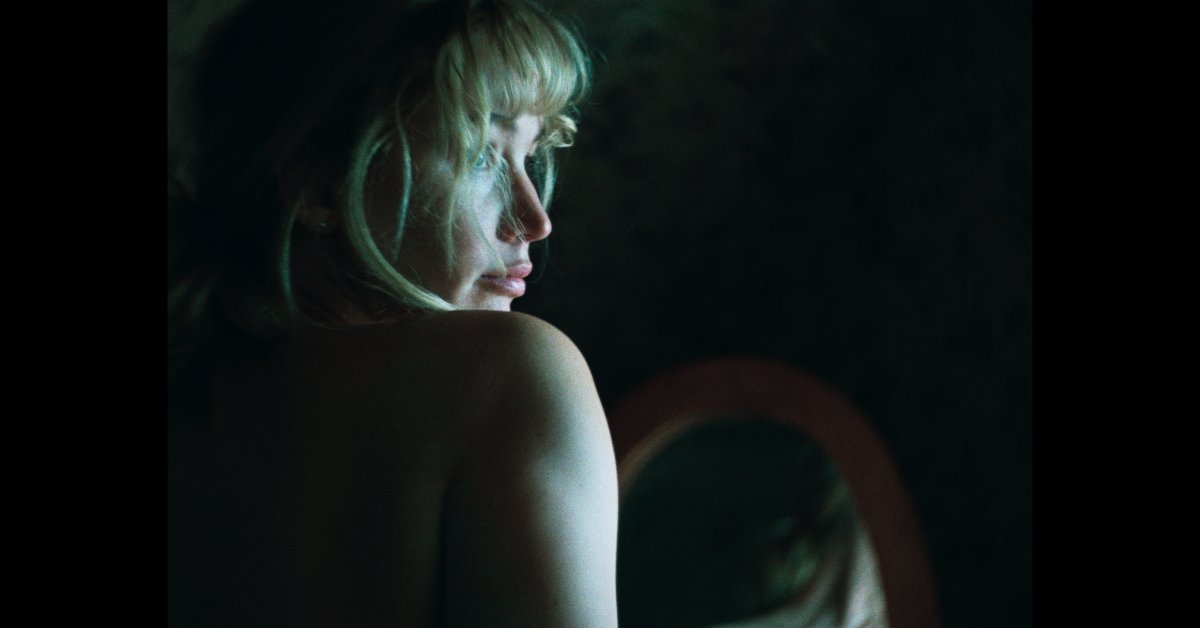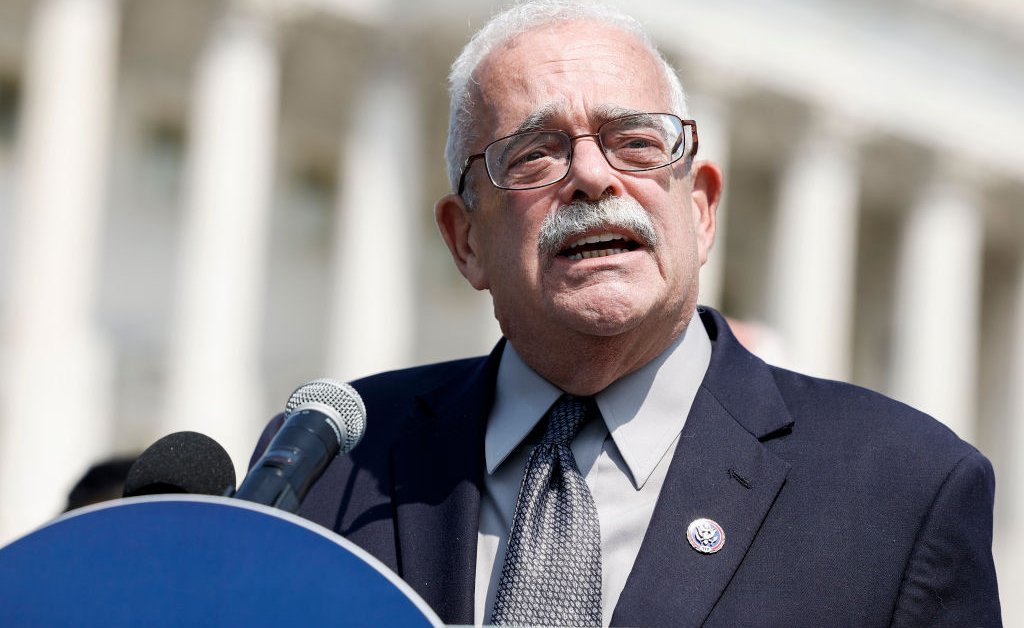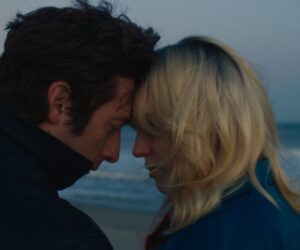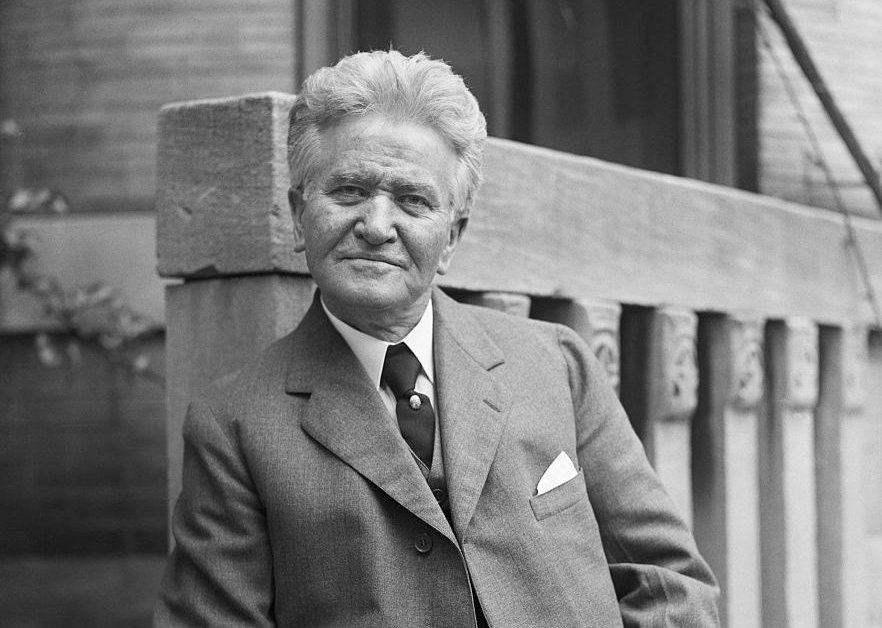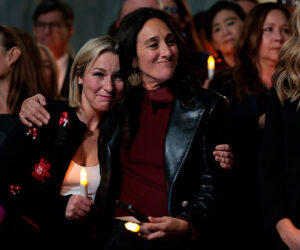Of the roughly 35 films I saw across 10 days, here are the standouts of Cannes 2025. In terms of the competition films, at least, this has been one of the most enjoyable, well-built slates I’ve seen in the 15 years or so that I’ve been attending the festival. There’s always something you’re going to miss; one of the tragedies of being human is that we can’t be in two places at once. But then, one of the delights of being human is sitting down, turning off your phone, and for once not multitasking, instead giving yourself fully to the vision before you on the screen. Some of the films and performances mentioned here will surely shape the conversation come Oscar time. And though it may be a while before some of the less-flashy films on this list become viewable, in some form, in the United States, seeking them out will widen your world, as it has mine.
Nouvelle Vague
Richard Linklater’s agile, witty, elegant picture about the making of a movie that possibly only film lovers and bona fide old people care about—Jean-Luc Godard’s cannon-shot of a debut, 1959’s Breathless—may end up being appreciated by only about 2.6 percent of the general population. Who would make a picture like that? Only someone who cares. Nouvelle Vague, part of the Cannes competition slate, is the ultimate inside-baseball making-of movie. But even more than that, it’s a picture that stands strong on the side of art, of history, of working to solve the puzzle of things that maybe at first you don’t fully understand. It’s both a shout of joy and a call to arms. It’s all about the bold, muscular act of caring. [Read the full review.]
The History of Sound
Oliver Hermanus’ romantic melodrama divided critics here at Cannes, not because it was daring or controversial but because, it seemed, the filmmaking was viewed as too restrained and conventional, maybe even snoozy. That’s what I love about it: there’s a quiet lushness to this story of a romance between two music scholars, played by Paul Mescal and Josh O’Connor, one a Kentucky country boy, the other a New England sophisticate, who meet at the New England Conservatory on the eve of World War I and fall in love, discreetly, as would have been necessary at the time. Both share an interest in old folk music, and they take a trip together to the backwoods of Maine, meeting average citizens and collecting, by recording on wax cylinders, the songs these people have been carrying in memory for generations. The performances are remarkable, particularly Mescal’s—just to watch him listening is galvanizing. The History of Sound has the polished texture of the “Oscar movies” we used to get in the 1990s and early 2000s; it’s perhaps more gentle than it is groundbreaking. But its landscape of longing and loneliness, mapped song by song, has a misty, welcoming beauty.
Die, My Love
Because so many Oscar front-runners have filtered through Cannes in the past few years, everyone who comes here is keeping an eye out for the next big sensation. Scottish filmmaker Lynne Ramsay’s beautiful, brutal Die My Love probably won’t tease the public’s curiosity in the way last year’s The Substance did—it’s a much smarter, thornier movie about women’s experience. But Jennifer Lawrence’s terrific performance is something people are going to want to see and talk about. As Grace, a woman unmoored by postpartum depression, she goes not just to the edge but beyond it. Lawrence has had children herself, and her body shows it. She’s no movie-star stick-figure; she has a dreamy earthiness, like a Rembrandt nude. Her face is round and plaintive; she’s vulnerable-looking, like a baby Ellen Barkin. This is the kind of performance people call “fearless,” for lack of a better word—I’m sure there is a better word, but who knows what it is? What Lawrence does in Die, My Love is so delicately textured, even within its bold expressiveness, and its fiery anger, that it leaves you scrambling for adjectives. It’s the kind of performance you go to the movies for, one that connects so sympathetically with the bare idea of human suffering that it scares you a little, though it also makes you feel more exhilarated than drained. [Read the full review.]
Amrum
Turkish-German filmmaker Fatih Akin has made great films (the 2004 rock’n’roll redemption parable Head-On) and dismal ones (the grim serial-killer creepout The Golden Glove, from 2019). Amrum, which played out of competition at the festival, is a lovely departure for Akin, a film that explores how memories shape us—and how often we decide at an early age what type of person we’re going to be. Set on the German island of Amrum in the North Sea in the final days of World War II, this is the story of Nanning (played by a wonderful young actor named Jasper Billerbeck), a boy on the cusp of adolescence, steeped in Hitler youth culture but gradually realizing he’s been backing the wrong side. Still, he’s so eager to please his fervent Nazi mother that he continues to go through the motions; his reckoning is sometimes bitterly funny to watch, though we can see how painful it is for him. The semiautobiographical script is by Hark Bohm, Akin’s cowriter on his 2017 In the Fade; Diane Kruger, the star of that film, appears here as a sturdy island farmer, crucial to the islanders not just for the food she grows, but for her common sense in the midst of madness.
Romería
It’s 2004, and 18-year-old Marina (Llúcia Garcia), who lost her parents to AIDS and drug addiction when she was six, treks from Barcelona to the coastal city of Vigo for two reasons: there’s paperwork she needs to secure a scholarship for her studies (she hopes to become a filmmaker), but even more important, she hopes to unravel the secrets of the parents she barely knew. Shot in Galicia, a landscape of rocky coasts and salty-blue air, this loosely biographical third feature from Catalan filmmaker Carla Simón, part of the Cannes competition slate, has a wistful, earthy glow. This is graceful, quietly intelligent filmmaking—including a touch of unsentimental magic realism involving a wise and beautiful Norwegian Forest Cat.
Two Prosecutors
Maybe it’s just the global mood of the day, but Ukrainian filmmaker Sergei Loznitsa’s crisply made shaggy dog story, with its bleak sense of humor, somehow felt like the movie of the moment. It’s 1937 Stalinist Russia: A desperate letter from an unjustly imprisoned man reaches a newly appointed local prosecutor (Aleksandr Kuznetsov). He vows to correct this injustice, jumping dutifully through every bureaucratic hoop until he can meet with the government bigwig who can help. Two Prosecutors, adapted from a 1969 novel by Georgy Demidov, is a bleak shout of futility that’s also strangely, bitterly funny. If you didn’t laugh, you’d cry.
The Mastermind
Kelly Reichardt’s almost-a-comedy about a hapless art thief in 1970s Massachusetts—played, wonderfully, by Josh O’Connor—is a perceptive portrait of a guy who, after apparently coasting through life, coasts right into a figurative brick wall. Who wouldn’t buy anything O’Connor, with his darling secret smile, tells them? Alana Haim plays his had-it-up-to-here wife; a scene in which he explains his motivation to her—everything he’s done has been “mostly” for her and the kids—is both gently funny and heartrending, not because he’s lying to her, but because he believes every inadequate word.
Young Mothers
The Dardenne Brothers are such Cannes regulars that whenever their films show up in the competition slate, you expect a well-crafted, intimate drama that may be satisfying enough to watch in the moment, even if it doesn’t really linger in memory. But Young Mothers, which follows four teenage mothers in a state-run home as they learn to care for their infants—or, more wrenchingly, learn to let go—is a quiet stunner. Like many of the Dardennes’ films, it has a quasi-documentary feel; the girl’s faces—and they are girls, despite being of child-bearing age—are open and vulnerable. One is fighting drug addiction—she swears to her wriggling infant that she’s going to quit, though the reality is much harder than the vow. Another is trying to escape a cycle of poverty and abuse; she knows she can only do so much for herself, but she wants something far better for her daughter. This is a hopeful movie, not a depressing one. Even so, it tugs at you, long after the last frame.
Urchin and The Chronology of Water
The festival’s Un Certain Regard section featured two films by young actors trying their hand at directing full-length features for the first time. Kristen Stewart’s Chronology of Water—starring Imogen Poots and based on Lidia Yuknavitch’s memoir about sexual trauma and substance abuse—is hardly a perfect film. But there’s nothing timid about it. Stewart makes some bold choices here, refusing to sand down the jagged edges of this story even as she structures it in a way that doesn’t send us spiraling into despair. And English actor Harris Dickinson, terrific in films like Babygirl and Triangle of Sadness, turns out to be a smart, promising director as well. In his debut film Urchin, which also premiered in Un Certain Regard, Frank Dillane plays a Londoner who’s fallen through the cracks, drug-addicted and living on the streets; he resolves to clean up his life, with the usual pitfalls and some new ones. Dickinson has a light touch and a lively imagination, as well as a sense of humor; he takes material you think might be conventional and opens new windows of thinking. You could argue that it’s “easier” for famous young actors to make their first film. But if they’re using their prestige and resources to make smart, inventive debuts? We all win. These are emerging filmmakers who refuse to be boring.
Orwell: 2+2=5
Raoul Peck is one of our most valuable documentary filmmakers. Instead of just presenting us with information, he shows us ways of seeing, inspiring us to look for patterns and connections we might not have seen otherwise. That’s the principle at work in Orwell: 2+2=5, which premiered here out of competition. You can know George Orwell’s work backward and forward and still find something new here. Or you can be an Orwell neophyte and understand why, 75 years after his death, his ideas and preoccupations feel more modern than ever. Orwell worried in advance about the lives we’re living today. Orwell: 2+2=5 makes the case for why we should be worrying, too. [Read the full review.]
Sentimental Value
Danish-Norwegian filmmaker Joachim Trier broke through in the United States in 2021 with The Worst Person in the World, starring the extraordinary Renate Reinsve as an uncompromising but not altogether “together” young woman navigating romance, and life, and making lots of mistakes along the way. Trier and Reinsve return with the marvelous Sentimental Value, part of the Cannes competition: Reinsve and Inga Ibsdotter Lilleaas play sisters, raised in a sprawling yet cozy house that has been in the family for years, who are suddenly forced to reckon with the selfishness and self-absorption of their long estranged filmmaker father (Stellan Skarsgård). Sentimental Value strikes a slightly more somber note than Trier’s previous film, but it’s no less radiant. “Tenderness is the new punk,” Trier said at the press conference for his film. Those may be our new words to live by.

